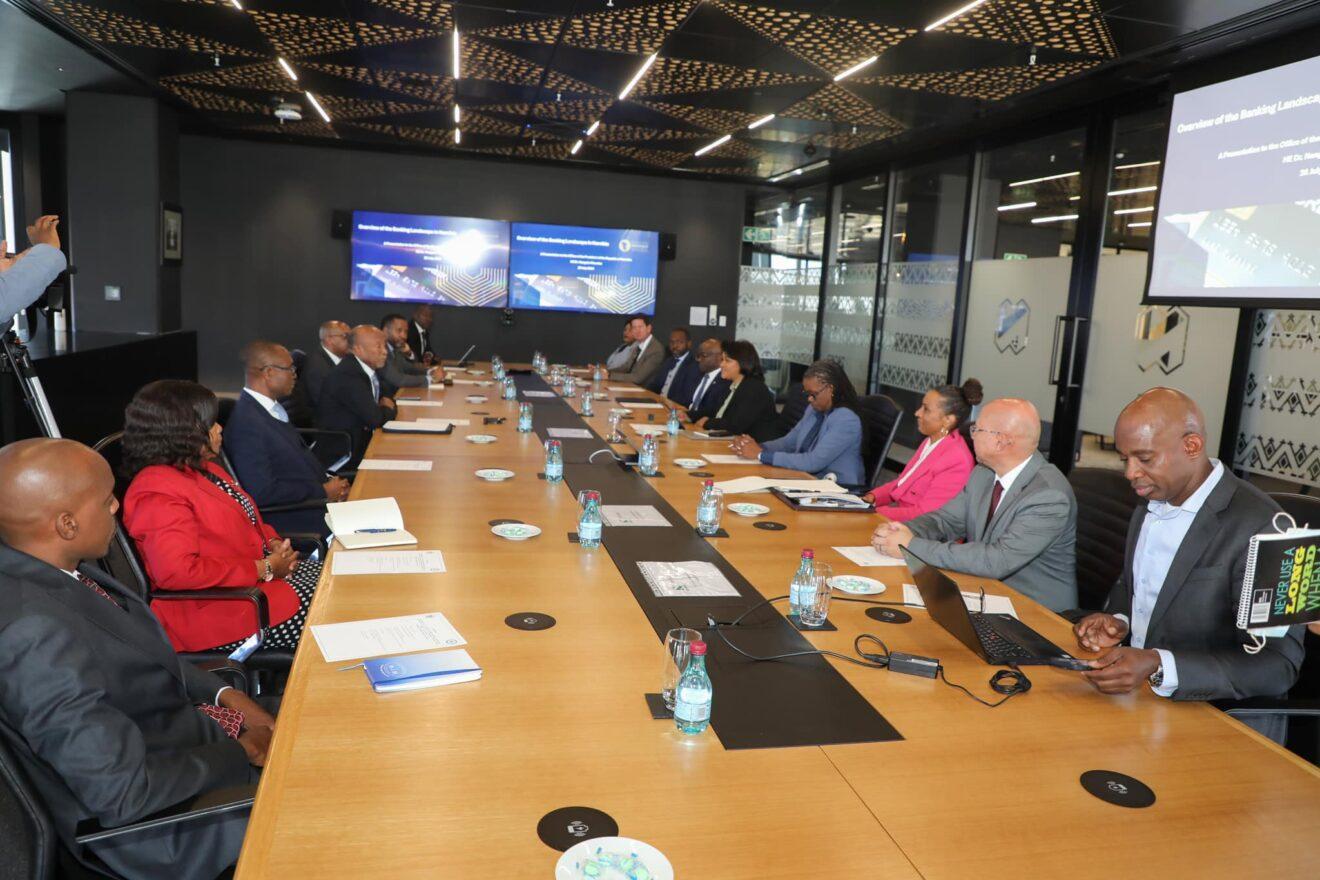Africa-Press – Namibia. The Bankers Association of Namibia (BAN) has stuck to its guns, saying it is normal to keep interest rates aligned with repo rate adjustments, as it makes economic sense.
This is despite a persistent public outcry, parliamentarians’ claims that banks are greedy, and President Nangolo Mbumba asking them to reconsider their approach
“We must hike rates when the Bank of Namibia (BoN) does. This is because money that we lend to the consumer is more expensive for us to borrow to on-lend. That’s how it works worldwide. I’m not privy to what the governor said or did not say – and unfortunately can’t comment,” BAN CEO Brian Katjaerua told this publication recently.
He finally commented on the question of why banks do not consider their clients when religiously increasing their interest rate on loans when the BoN hikes the repo rate.
BoN last month decided to keep the repo rate unchanged at 7.75%.
Likewise, the prime lending rate remained steady at 11.50%.
This policy stance, the central bank noted, is to continue to safeguard the one-to-one link between the Namibia Dollar and the South African Rand, and support domestic economic activity.
Further, the central bank clarified that the high rates are meant to curb domestic inflation, currently at 4.6% for June 2024.
BoN governor Johannes !Gawaxab has in the past said commercial banks do not need to increase interest rates when the repo rate goes up.
The public perception persists that the banking sector is draining the pockets of its already-stretched clientele with high interest rates, and a myriad of unaffordable charges.
The repo rate is the interest rate at which commercial banks take short-term loans from central banks.
An increase in the repo rate intends to raise commercial bank lending rates, limiting the money supply, and theoretically controlling inflation.
At the same time, decreasing the repo rate is aimed at boosting economic activities, encouraging borrowing, and expanding the economy.
However, !Gawaxab remains adamant that it is not compulsory for banks to increase their lending rates in line with repo rate adjustments.
He noted he is aware of the public’s suffering considering increased bond and loan repayments, as well as escalating food prices.
Katjaerua stated the domestic banking sector is well in line with its code of conduct, and is transparent enough to its customers.
An analyst argued that it is diminishing household spending power, while banks are raking in billions of dollars’ profits every year. Josef Sheehama, an independent economic and business researcher, commented: “Banks are in it to make profits.
“Under the central bank’s supervision, the banks track market developments. The bank will raise the lending rate in response to an increase in the repo rate by the central bank. Additionally, the bank must adopt the newest technology, which is prohibitively expensive, given that licence and maintenance costs must be covered,” he noted.
The local economist advised that customers could use less expensive digital channels than traditional banking such as self-service, online banking and mobile apps.
“The banking industry complies with the central bank’s directives, especially when customers request credit extensions,” he added.
Last week, Mbumba urged the banking sector to consider the financial hardships Namibians are going through.
While meeting the country’s banking leadership, he reminded them that the public is bleeding and suffering due to high bank charges and unsustainable interest rates.
The President met the bankers at Nedbank Namibia’s headquarters to exchange notes, and to determine the status of the banking sector.
A Namibian homeowner weighed in, saying her mortgage ballooned in two years, leaving her pockets empty.
“When I bought this house, I was paying less than N$6 000 in 2018. In 2022, I was almost paying N$9 000. This really forced me to drastically alter my spending, and my life was a mess,” she expressed.
The interest rate matter last year also reached the National Assembly on different occasions.
Deputy Minister of Works and Transport Veikko Nekundi last year welcomed the new Banking Institutions Bill that will grant the finance ministry the authority to regulate banking fees charged to clients.
He described the system used by local commercial banks when charging clients as discriminatory and exploitative.
Nekundi took issue with the country’s commercial banks, saying ordinary Namibians have been suffering at the hands of banks.
He charged that commercial banks are heartless because they are happy to gain at the expense of ordinary people, and “celebrate when they chase people into a roofless environment.
“It is unheard of. When everyone is under financial stress, the banks, whose profits are protected by laws, are making billions in profit. Therefore, the Bill must have no mercy on the banks. Instead, it must in the real sense and meaning advance the interests of people,” he demanded.
For More News And Analysis About Namibia Follow Africa-Press






